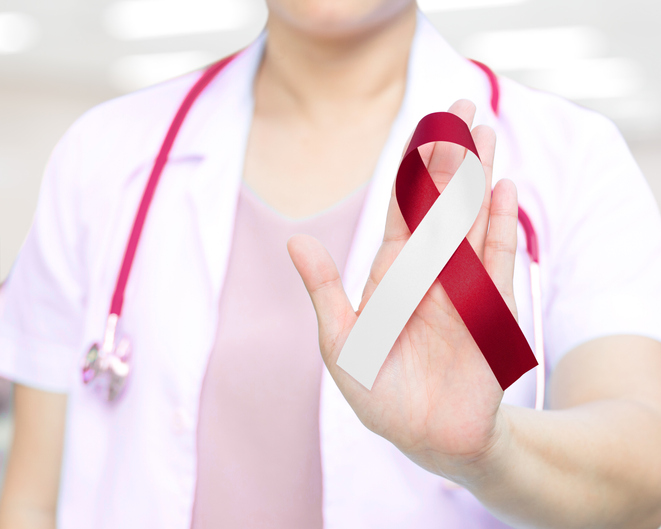
April is Oral Cancer Awareness Month, and with good reason. While other types of cancer may be more high-profile, oral and oropharyngeal cancer are just as serious, killing nearly one person every hour, every day, all year. Because 40 percent of people diagnosed with these cancers won’t survive longer than five years, it’s vital to raise awareness, to encourage people to care for the health of their mouths and lower their risk factors.
Why is the death rate so high with oral cancers? It’s primarily because these types of cancer are generally not discovered until late in their development. That’s why dental associations are trying to raise awareness: regular oral cancer examinations lead to early detection, which saves lives.
So what’s the good news? When oral and oropharyngeal cancers are found early and appropriately treated, the mortality rate is reduced. So, too, are the long-term health problems that so often plague the survivors of these cancers, like facial disfigurement and difficulty eating and speaking.
In addition to having regular screenings, it’s essential to be aware of the symptoms of oral cancer. If you notice any of the following, contact a dental professional if they don’t improve within two to three weeks. You might also choose to call a dental professional immediately to ease your own concerns.
- A sore, ulceration, soreness, or irritation that doesn’t go away within 14 days.
- Red, black, or white patches, pain, tenderness, or numbness in the mouth or lips
- Lumps, hard spots, thickening tissues, rough spots, raised tissue, or crusty or eroded areas
- Any abnormality that bleeds when you touch it
- Difficulty with chewing, swallowing, speaking, or moving your jaw or tongue
- A change in your bite that causes your teeth to fit together differently when you close your mouth
- A lump on the outside of your neck that’s painless, firm, fixated, and doesn’t go away within two weeks
- Persistent coughing
- An earache on one side that lasts more than a few days
Are you at risk for oral cancer? In the past, older people who drank or smoked heavily were considered at the highest risk. Today, there’s been an increase in the number of younger nonsmokers with these types of cancers. This is due, at least in part, to the sexually transmitted human papillomavirus, or HPV16. This virus can be dormant for many years but then resurface and cause cancer. This typically happens among the non-smoking population, and to men four times as often as women.
One of the best ways to keep your mouth healthy is by scheduling regular dental appointments. If you’re looking for dentistry services in Chicago, you can have confidence in the team at University Associates in Dentistry. We offer complete dental care at our all-in-one practice, from regular cleanings and routine treatment to complex specialty care. You can make a dentist appointment in Chicago by calling (312) 704-5511, or visit our website for more information or to schedule a complimentary consultation.



